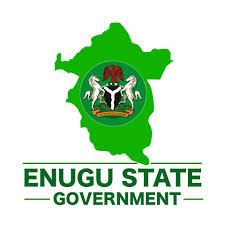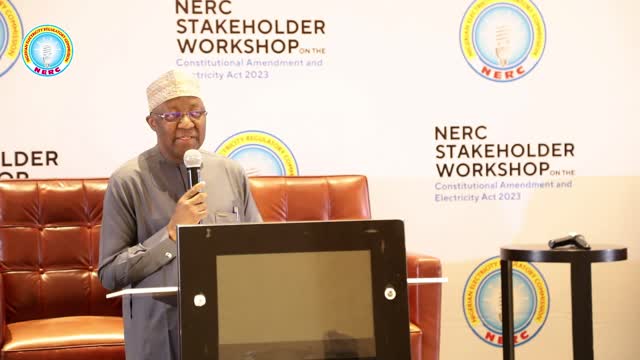News
Herdsmen: We won’t take instructions from deposed Emir – Ortom fires back at Sanusi
Benue State Governor, Samuel Ortom has cautioned the deposed Emir of Kano State, Alhaji Lamido Sanusi to restrain himself from meddling in the affairs of the state.
He advised Alhaji Sanusi to instead face the court litigations surrounding his dethronement.
The Governor spoke Tuesday at the Benue State University Teaching Hospital, Makurdi, while inaugurating the Benue Sexual Assault Referral Centre, known as DOHAPITU Clinic.
Governor Ortom wondered why as educated and exposed as the dethroned Emir was, he would resort to telling lies about an elected personality like himself just to suit his purpose.
Sanusi had, in a recent video which went viral, dragged Ortom to the unfortunate incident in Nassarawa State where some persons alleged to be Fulani herdsmen were killed in an air strike attack, the source of which is still a subject of an investigation by relevant authorities.
The deposed Emir called on the Benue governor to learn from his brother governors on how to manage the diversity in his state, citing the Governor of Plateau State as his model.
The Governor said while he does not intend to join issues with the deposed Emir because of the sacredness with which he holds human lives, he maintained that the anti-open grazing law, which the deposed Emir made reference to in the video, is a law that was validly passed by the Benue State House of Assembly which prescribed penalties against its violations.
He said the Benue State Government or indeed the governor cannot deploy a drone or any military assets in any part of the country.
According to the Governor, “at the appropriate time I will formally respond to that evil presentation to Mr. President against me. I will talk about my story and expose the evil that is going on orchestrated by those that are perceived to be educated and prominent and supposed to be leaders.”
Governor Ortom said he found it strange that Alhaji Sanusi would advise him to govern Benue like his Plateau State counterpart, saying he was “elected by the people of Benue State and my allegiance is to Benue State people, not to any man in Kano.”
Governor Ortom pointed out that the law prohibiting open grazing in Benue State, which Alhaji Sanusi was against, “is not in conflict with the constitution of Nigeria so nobody can stop us from enforcing the rights and practice of the law.”
On the Benue Sexual Assault Referral Centre, the Governor expressed optimism that it would be able to address all the issues confronting victims of rape in the state in order to give them justice.
He commended his wife, Dr. Eunice Ortom, and those whose assistance ensured the centre’s establishment and assured that his government would not relent in supporting programmes in the health sector.
Wife of the Governor, Dr. Eunice Ortom, represented by the Commissioner for Women Affairs, Mrs. Tabitha Igirgi, said the compelling need to give victims of rape hope for a better life drove her passion for the establishment of the centre.
The Coordinator, Benue Sexual Assault Referral Centre, Dr. Laadi Swende, said the centre would among other things provide emergency care services, offer family planning and prevention for sexually transmitted infections to victims of rape.
Dr. Swende pointed out that the centre was open to partnership from private organisations and good-spirited individuals to enable it to operate twenty hours thanked the State Government for providing the funding for its establishment.
Commissioner for Health and Human Services, Dr. Joseph Ngbea and Chief Medical Director, Benue State University Teaching Hospital, Professor Terrumun Swende in their goodwill messages appreciated Governor Ortom and his wife for their achievements in the health sector.
News
Tinubu directs education officials to conduct census of all schools, teachers


President Bola Tinubu has ordered the conduct of an extensive census to ascertain the fault lines and aid proper planning.
The presidential directive handed down on Thursday, is expected to produce data on all schools in Nigeria from primary to tertiary level, their present conditions and live-in facilities, proximity to one another and infrastructure.
It will also ascertain the number of teachers in the country, their qualifications, training support received, number of pupils and students in primary, secondary, and tertiary institutions, gender, and exam grades, among others.
The Federal Ministry of Education, currently under Mamman Tahir’s purview, will partly spearhead the process by hosting a portal or dashboard where the critical information will be dropped.
A statement by Special Adviser to the President on Media and Publicity noted that the policy DOTS, an acronym for Data Repository, Out-of-School Children Education, Teacher Training and Development, and Skill Development and Acquisition will comprehensively overhaul the education sector to improve learning and skill development, increase enrolment, and ensure the academic security of the nation’s children.
The presidency said the information that will be derived from the exercise will guide federal and state interventions for teachers’ training and development as well as overall support.
“It will also provide data on gender ratio (boys and girls), their specific learning needs, and who is in school or who has dropped out based on daily monitoring with year-by-year reporting.
“There will be a dedicated portal/dashboard in the Federal Ministry of Education, offices of state governors, and local government chairpersons, which will host and disseminate this information for the federal government, states, and local governments to monitor in real time.
“This new data tracking architecture will enable the government to track the progress of students, thus having a clear data-driven mechanism for interventions, especially concerning out-of-school children, [especially] girls, and those with specific learning disabilities, among others,” the presidential spokesman added.
On the challenges of out-of-school children’s education and training, the Federal Ministry of Education said it is already implementing the government’s policy through the activities of four of its agencies, with about two million beneficiaries already recorded.
News
Enugu Govt cautions NERC, EEDC against overcharging electricity consumers


The Enugu State Government says it will not condone any act of overcharge or extortion of electricity consumers in the state by the Enugu Electricity Distribution Company (EEDC).
Gov. Peter Mbah gave the warning on Thursday while declaring open a three-day Customer Complaints Resolution Meeting organised by the Nigerian Electricity Regulation Commission (NERC) in Enugu.
Mbah, represented by the Secretary to the State Government, Prof Chidiebere Onyia, identified electricity as a product, adding that it should have cost implications which should be fair and reflective of economic realities to all stakeholders.
“I urge NERC not to derail on the steady and quality power supply according to the band classifications,”
According to him, the state government is committed to ensuring that people have access to electricity services in the state.
The governor said that the government was currently studying underserved and unserved communities and would soon constitute the management of the newly established Enugu State Electrification Agency.
“Enugu State is poised to catalyze the economic growth of the South-East through a cost effective and efficient power supply to grow our Small and Medium Enterprises (SMEs) and industries among others,”.
While commending NERC for organising this event, the governor charged the regulatory body to endeavour to resolve most of the challenges faced by customers as complained by them.
He said that the government had started engaging with developers and investors interested in setting up power generation plants under the willing-buyer and willing-seller commercial agreement.
Mbah said that when completed, it would catalyze economic and industrial growth of the state and South-East.
News
FG will require N3.2trn to subsidise electricity in 2024 – Official


The Federal Government says it will require about N3.2 trillion to subsidise electricity in 2024, if the current tarrif increase has to be reversed.
Mr Sanusi Garba, the Chairman, Nigeria Electricity Regulatory Commission (NERC), said this at a stakeholders’ meeting organised by the House of Representatives committee on Power in Abuja on Thursday.
He said that the investments in the sector was not enough to guarantee steady power supply nationwide.
He added that if nothing was done to address foreign exchange fluctuation and non payment for gas, the sector would collapse.
He said that prior to the tarrif review, Electricity Distribution Companies (DisCos) were only obligated to pay 10 per cent of their energy invoices, adding that lack of cash backing for subsidy had created liquidity challenge for the sector.
He added that as a result of the non payment of subsidy, gas supply and power generation had continued to dip.
He said that the continued decline in the generation and system collapse were largely linked to liquidity challenge.
He said from January 2020 to 2023, the tariff was increased from 55 per cent to 94 per cent of cost recovery.
He added that “the unification of FX and current inflatinary pressurws were pushing cost reflective tarrif to N184/kwh”
“If seating back and doing nothing is the way to go, it will mean that the National Assembly and the Executive would have to provide about N3.2 trillion to pay for subsidy in 2024,” he said.
Garba said that only N185 billion out of the N645 billion subsidy in 2023 was cash backed, leaving a funding gap of N459. 5 billion.
The Vice-Chairman of NERC, Mr Musiliu Oseni also justified the recent tarrif increase, saying the increment was needed to save the sector from total collapse.
Rep. Victor Nwokolo, the Chairman of the Committee said the essence of the meeting was to address the increase in tarrif and the issue of band A and others.
Nwokolo said the officials of NERC and DISCOS had provided useful Information to the committee.
“We have not concluded with them because the Transmission Company of Nigeria is not here and the Generation Companies too.
“From what they have said which is true, is that without the change in tarrif, which was due since 2022, the industry lacks the capital to bring the needed change.
“Of course, the population explosion in Nigeria, is beyond what they have estimated in the past and because they need to expand their own network, they also needed more money, ” he said.
-
Finance3 months ago
Court orders Sen. Victor Umeh to repay N136m bank debt to AMCON
-



 Abuja Update2 months ago
Abuja Update2 months agoUNDP, FG partnership needed to achieve inclusion, equity- Minister
-
Abuja Update4 weeks ago
Banks drive stock market performance with N147bn gain
-



 Infotech2 weeks ago
Infotech2 weeks agoWorld Backup Day: NITDA urges Nigerians to ensure backup of data
-
capital market2 years ago
Rt.briscoe, FBNH, Others halts negative performance of stock market
-



 Health2 weeks ago
Health2 weeks agoImmunisation: FG, GAVI seek synergy with Sokoto Govt.
-
Submission Guidelines3 months ago
CALL FOR SUBMISSIONS: POETRY COLUMN-NND
-
Infotech1 week ago
Forex for Beginners: Unveiling the currency exchange and how to trade it






